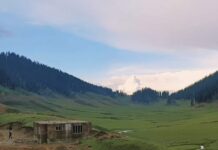New Delhi (NVI): The COVID-19 pandemic is a critical threat to indigenous peoples at a time when many are also struggling against man-made environmental damage and economic destruction, the United Nations (UN) said.
According to UN estimates, among the world’s poorest, there are roughly 476 million indigenous people worldwide. Although they are less than 5 per cent of the global population, they account for 15 per cent of the poorest people on the planet.
Michelle Bachelet, the UN High Commissioner for Human Rights said, “Overall, the pandemic hammers home the importance of ensuring that indigenous peoples can exercise their rights to self-government and self-determination,” she added in a message for the International Day of the World’s Indigenous Peoples, to be observed tomorrow.
“This is about saving lives and protecting a precious web of cultures, languages and traditional knowledge, that connect us to the deep roots of humanity,” Bachelet said.
The coronavirus cases have surpassed 19 million globally, and America remains the epicenter of the crisis, the World Health Organization (WHO) announced earlier this week.
In America, more than 70,000 indigenous people across the region have been infected to date, including almost 23,000 members of 190 indigenous peoples in the Amazon basin, the UN said.
Bachelet also noted that many indigenous communities have “deeply inadequate” access to health care, clean water and sanitation, while their communal way of life can increase the probability of rapid contagion.
“Over 1,000 deaths have been recorded, including several elders with deep knowledge of ancestral traditions,” she added.
However, the Amazon spans nine countries and indigenous communities in the vast region live on lands that are increasingly damaged and polluted due to illegal mining, logging and slash-and-burn agriculture.
Despite measures to contain COVID-19 spread, such as movement restrictions, many of these activities have continued, alongside movements by religious missionaries which also expose the indigenous to the risk of infection.
Meanwhile, those indigenous people who live in voluntary isolation from the modern world may have particularly low immunity to viral infection.
In addition to this, Bachelet said, indigenous communities must have a role in pandemic response, stressing that “they must also be consulted, and should be able to participate in the formulation and implementation of public policies affecting them, through their representative entities, leaders and traditional authorities.
-RJV







